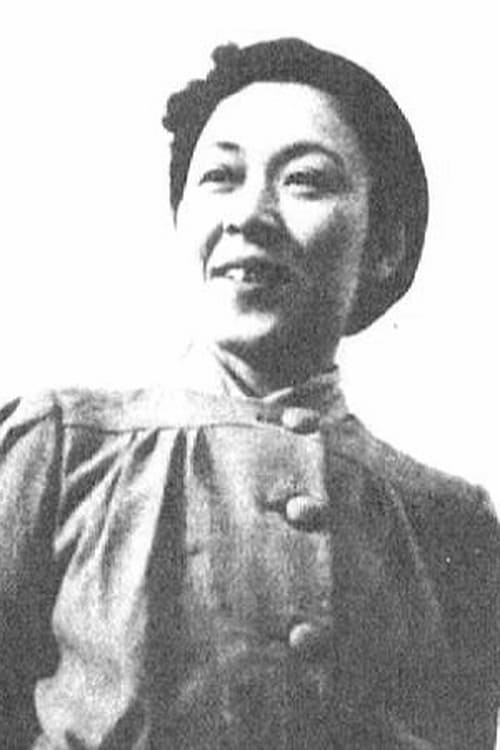Sachiko Murase
Nascimento : 1905-03-21, Tokyo, Tokyo, Japan
Morte : 1993-10-09
História
Sachiko Murase (村瀬 幸子, Murase Sachiko, 21 March 1905 – 9 October 1993) was a Japanese actress. She appeared in more than 60 films between 1931 and 1991.
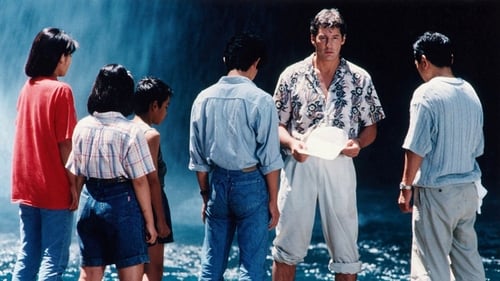
Kane (The Grandmother)
Em umas férias de verão, uma senhora sobrevivente da bomba de Nagasaki está com seus quatro netos reunidos e conta para eles as lembranças do dia do ataque, que vitimou milhares de pessoas (60 mil e 80 mil seres humanos em Nagasaki), entre elas, seu marido.

Tatsu, Ryôsaku's wife
An old woman has died and her widower with dementia confesses to killing her. After this, the story goes back in time to show the events leading up to her death.
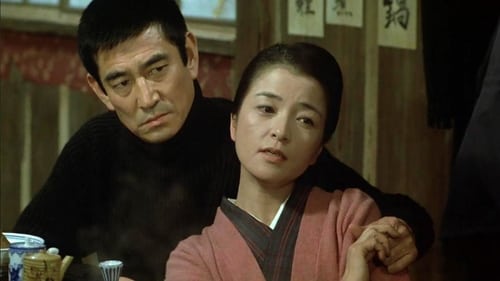
Ryosuke's Mother
A detective goes out of his way to crack the case of a serial killer who specialises in murdering police officers.

Tragedy about a terminally ill girl.

Based on a novel by Ayako Miura.

Iwabuchi of the Metropolitan Police Department's Investigation Division cooperates with Kubo of the Foreign Affairs Division in re-investigating the case of a foreign drug addict's death at the request of Kubo.
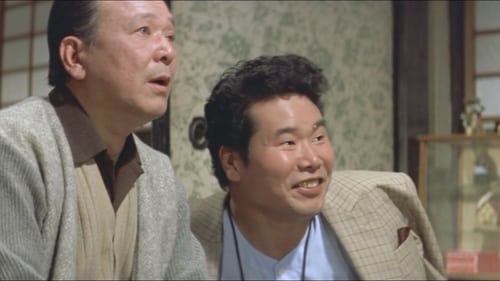
After winning big at the races, Torajiro Kuruma wants to take his aunt and uncle on a trip to Hawaii to partly pay the great filial debt he feels he owes them, but the plan hits a snag. Also, a pretty kindergarten teacher rents a room at Toraya.
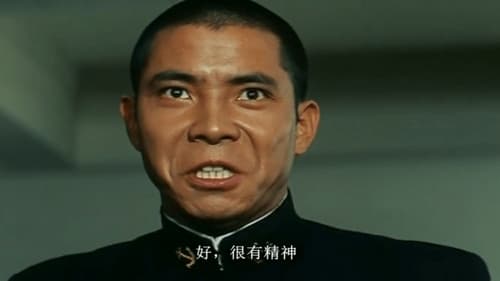
Fusayo
A young man leaves his widowed mother on her improverished farm and makes his career in the Japanese navy.
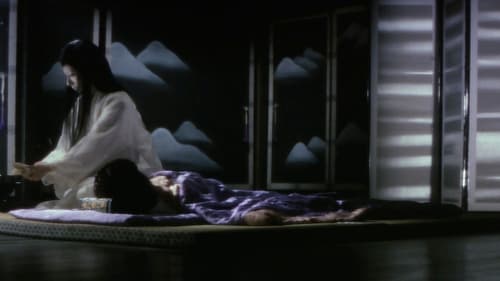
Soyo
A master sculptor and his apprentice are trapped in a bad snow storm after finding a special tree for carving a statue for the local temple. Finding refuge in an abandoned hut they celebrate their luck in finding the tree but soon they are visited by the Snow Witch who freezes the sculptor to death but takes pity on the apprentice. He must promise to never speak of this or she'll return and kill him.

A middle-aged factory engineer trains, marries, and ultimately loses a teenage bride after she enslaves him to her whims.

Yasu
Epic saga of an idealistic land-owning family dealing with militarism, war, social change and economic reform.

Nakano Institution is the so-called ‘Spy School’ where many young men are trained to be excellent spies. They erase their names, families, even lovers to bury themselves in training. Jiro, one of the cadets, successfully seize the secret code of English army to pass the final exam. However, he reaches the crossroad when his fiancee Yukiko turns out to be a spy of the enemy.

Natsuko, a Tokyo bar proprietress, and Yuki, a Kyoto Ryokan owner, vie for the affections of an advertising professional.
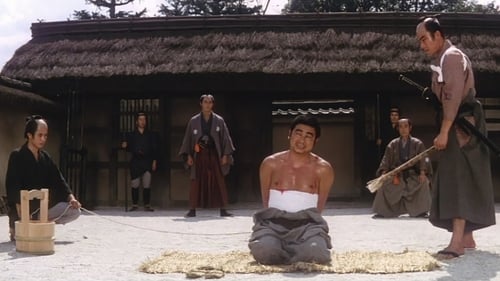
Shimazo’s wife
Blind swordsman Zatoichi, jailed briefly, is implored by another prisoner to aid him in proving his innocence of a crime for which he is sentenced to death. Zatoichi is reluctant to get involved, because he knows how often such involvement has led to trouble in the past. But events conspire to thrust him repeatedly into involvement, and gradually he comes to believe in the man's innocence and determines to free him.
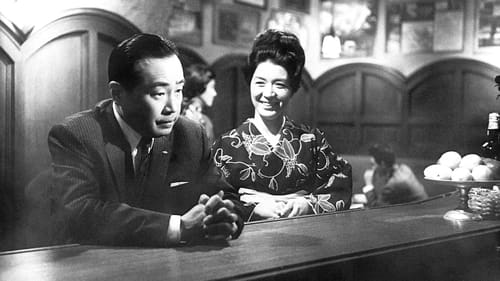
Matsuyo Hidaka
The executive director of the «Chuo Shoji» company, Hidaka Shiro, is called a "demon of work", but the hostess of the bar calls him "the loneliest person in Japan." He lost his wife ten years ago and has been living as a widower ever since. He plotted to marry off his 22-year-old daughter Keiko for political gain, but Keiko is in love with Okuda, who is her father's subordinate. A story full of sadness and joy, depicting a man gripped by different thoughts, as an employee of the company and a father.

Setsu Noro
A youth drama directed by Kiyoshi Horiike, who was adapted from "Young Tokyo no Yane" by Akira Saiga from "Oka wa Hanazakari" based on Yojiro Ishizaka. Miwako Kazuki left the English literature department and joined Toyo Critics. She was attracted by Noro, the editor-in-chief, whose wife died a few years ago and was now living with her two orphans and her old mother....
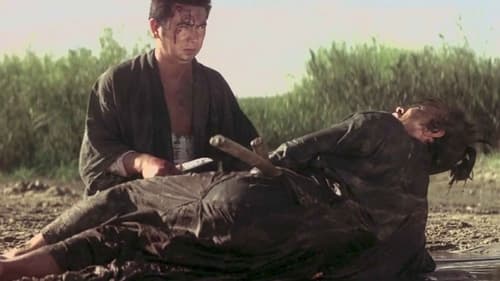
Maki
After arriving in the town of Shimonita, Ichi finds that a price has been put on his head by a local yakuza boss. He's drawn into a trap, but after hearing of the slaying of a former love, Ichi furiously fights his way through the entire clan to face the killer, a hired ronin.

Three stories about the relationship between men and women: "Playgirl" (Masumura/Shirasaka), "Company No. 2" (Yoshimura/Kasahara), and "San Nyotai" (Kinugasa/Shindô).
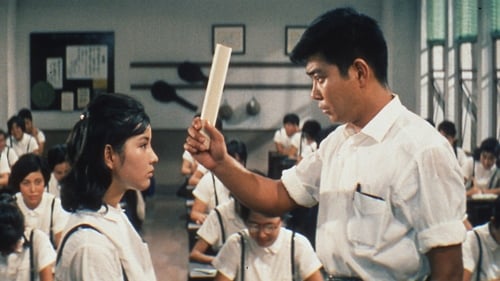
Atsuko Yamagata
Keiko is pretty and intelligent but her home life is not a happy one. Never having known a father's love, she develops a possessive attachment to Mr. Mazaki, the new mathematics teacher.

Two obaachans become fast friends listening to music in front of a record store. They both boast about their loving sons but in reality, one had just escaped a retirement home and the other was looking for an escape from her son and daughter-in-law. With nowhere to go, the two wander around, befriending a cosmetics salesman and a kind waitress who give them beer. This biting social satire starring two memorable grandmothers, scripted by Yôko Mizuki, picked up on Japan’s aging population problem far ahead of its time.

Hikoichi's mother
A youth drama set in a Japanese university which is home to a group of active, leftist students.
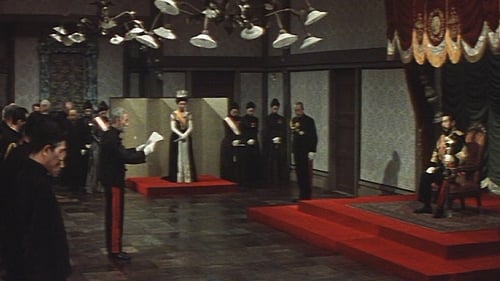
Shizuko
In January 1904, the situation between Japan and Russia had grown tense. The Emperor Meiji is deeply concerned, for Russia has started to build an invincible fortress at Port Arthur, and the relations between two countries have become strained to breaking point. General Nogi has retired to the first reserve and is now a gentleman farmer, but he is prepared for sudden mobilization. Finally, Japan declares war against Russia and Emperor Meiji appoints General Nogi as the commander of the force to attack Port Arthur. However, in spite of several all-out attacks, the fortress is strong and the casualties increase among the Japanese. Because of these reverses, there are loud cries for a change in command. However, the Emperor places his confidence in General Nogi.

A year ago, Tetsuo Yazaki was unemployed and wanted money, attacked a police box in Kobe, robbed a policeman of his pistol, attacked Hamamatsu OS Theater and Nagoya Shinwa Bank, and succeeded in robbing a large amount of money.
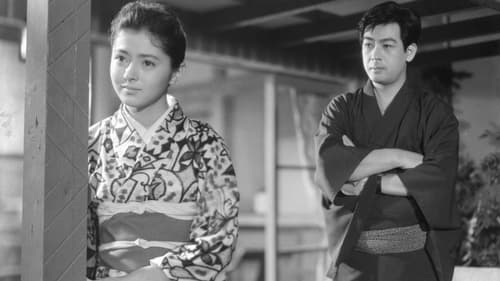
A mother and her daughter who run a quiet mountain hotel, and guests who visit the hotel. A girl who does not know what a broken heart is, the attractive joy of first love, and separation is like parting with life. The mother-daughter duet with Isuzu Yamada attracted a lot of attention at that time. Haruko Wanibuchi, demonstrated rare attractiveness and pure charm by playing a heroine living in a beautiful and pure first love.

Takako Sakô
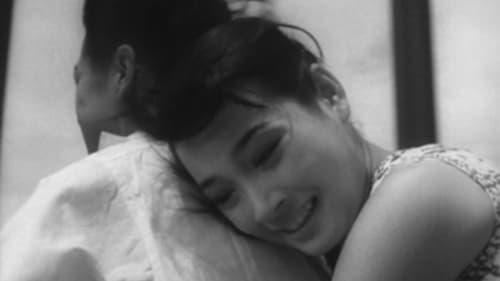
Kikyoko Shirakawa
Kinichi and Akiko meet when they visit their fathers in prison. After successfully gambling on a bicycle race, they spend an enjoyable day together at the beach.

Shizu Ube (Saiki's aunt)

Motoko

A Girl isn't Allowed to Love is a 1955 Japanese film directed by Teinosuke Kinugasa.

Yasuichiro Isa, who works in the labor section of Sone Mining Tokyo Headquarters, paid a monthly fee for his younger brother, Reiji, who was in trouble because he had a bonus of 10,000 yen more.

Aoshima's mother

After Shuichiro moved to Tokyo, the Tanno family became completely female, including Mrs. Tanno, Shuichiro's daughter-in-law Manzuko, painter Takashiro Egi, Shizu Kazemaki, Mitsue Nanbu, an intellectual who works in a university laboratory, and an old woman.

Shizuko Matsuo
An elderly woman devoted to her foster-daughter searches for a good husband for her.

Kimi Mamiya
A story of unhappy youths and the perils of lack of sex education.

Setsuko's mother
Young Setsuko Fujino begins a new job at Tokyo Chemical Company. She likes her boss, Ippei Hitachi, and enjoys serving him tea, despite the fact that her fellow workers think the women employees should not have to act in such a servile manner. When the women go on strike over the issue, Setsuko finds herself caught in the middle. When the heir to the company, Ryosuke Tanabe, proposes marriage to Setsuko, she is honored, but realizes that her real affection is for Hitachi.

Born to a prestigious family, Natsuko is not impressed by any one of her suitors. Determined to spend her life serving god, she sets off to a convent in Hakodate, Hokkaido, and meets along the way a young bear-hunter with whom she begins an adventure.

Carmen falls in love with an artist in this sequel to Carmen Comes Home. The film is noted for being entirely shot with canted (Dutch) camera angles.

"Pure white nights" - A romantic tale that depicts love between married people and the psychology of their marriage with elegant and a controversial touch. Love, art and suffering until the tragic and absurd ending.

Kyoko's mother, Setsuko

The Angry Street includes a great deal of location shooting in the rebuilt city, including downtown streets, residential neighborhoods, the campus of the University of Tokyo, and the high life of jazzy dance halls. Sudo (Hara Yasumi) and Mori (Uno Jukichi) are two university students who make money by picking up rich girls in dance clubs and conning them into giving them cash. Mori is the brains of the operation, and Sudo is the suave dancer who picks up the girls. Over the course of the film, Sudo becomes involved with three different girls and is drawn into the gangster milieu, which he seems unable to resist even though he is responsible for his mother, grandmother, and sister, Masako (Wakayama Setsuko). In this world of bad boys and girls, Masako is the pillar of strength and moral virtue who finally enables Mori to straighten out.

Kuniko
When the future of his construction company falls into danger, a controlling father pushes his children into unsatisfying marriages and careers in order to regain financial stability.

Ohatsu
Japanese mystery thriller.

Proprietress of the bar
A matchmaker looks to unite a young woman from a wealthy Tokyo family with the humble owner of an auto garage.
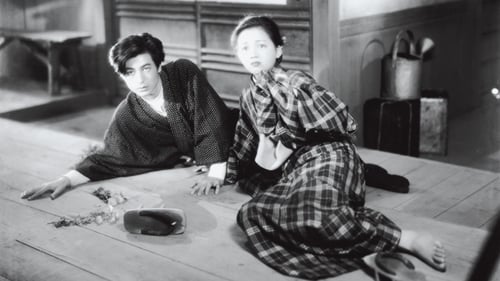
Inoko's wife
A teacher at a Japanese school tries to hide his outcast upbringing.

Masa Hirobe
Slice of life film centered around a couple of years in the life of a rural high school girl.

Fujie Sugawara
In postwar Japan a young woman is unable to marry her sweetheart because her family's in difficult circumstances and needs her income to keep afloat.
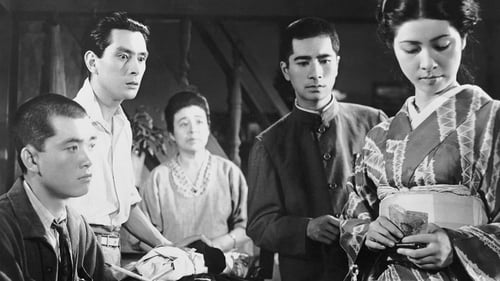
O-yuki
The sweet but naive denizens of a charming port town are hoodwinked by a couple of con men at the outset of World War II. But the hustlers’ plan backfires when they come down with severe cases of conscience. Keisuke Kinoshita’s directorial debut is a breezy, warmhearted, and often very funny crowd-pleaser that’s a testament to the filmmaker’s faith in people.

Sakai's wife
1942 adaptation of Izumi Kyoka's novel.
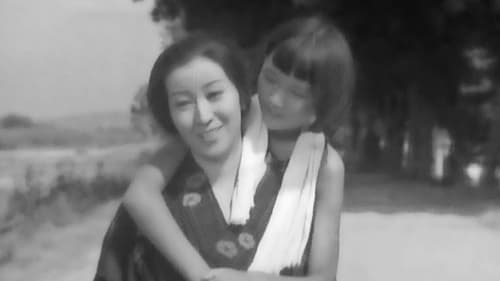
Keikichi's wife
Two young girls, Nobiko and Tomiko, go to the same school. The less fortunate girl Nobiko is one of the top students, while the rich girl Tomiko is not. At one time Tomiko's father was quite fond of Nobuko's mother.

Mrs. Hayakawa
A half brother and sister work at a hotel in Hakone respectively as a porter and a souvenir shop clerk. They are close. One day a woman named Hasegawa checks into the hotel in order to recuperate in a calm environment with fresh air. She is the mother of the store employee. The mother and daughter were separated due to the Kanto earthquake. The girl was practically raised by her older half brother.

Yoshiko
A period piece about the love of a wealthy blind woman, a teacher of koto and shamisen, and her devoted manservant. Based on a novella by Tanizaki Junichiro.

That Night's Woman

Oaki
Kenji and Chuko travel to Hokkaido as migrant workers and enlist as miners under the strict leadership of Guzuyasu. On the boat journey to Hokkaido, Kenji attracts Ohama, who is travelling to Hokkaido to open a bar. When Kenji visits the bar, he chases away a sailor who was hassling a shy girl, Ofuji, which makes Ohama jealous.

Ayako Kirihara
Part two of Shimizu's major silent Seven Seas, a family drama of the intertwining fates of the rich, decadent Yagibashis and the far less prosperous Sone family.

Mitsuko, reporter
Film by Hiroshi Shimizu, featuring an early role for frequent Ozu and Naruse collaborator Hideko Takamine.

Ayako Kirihara
The film is a lengthy work interweaving characters from different backgrounds and social strata in a narrative centered around the experiences of its heroine, Yumie Sone. Over two hours long, Seven Seas was released theatrically in two parts, with the first part entitled "Virginity Chapter" coming out in December 1931, while the second part, "Chastity Chapter," followed in March 1932. Near the beginning of the narrative, at a garden party given by the wealthy Yagibashi family in Tokyo, Yumie meets Takehiko, the Yagibashis' playboy son and the brother of Yumie's fiancé, Yuzuru. Yumie, a young middle-class woman, lives with her ailing father, a retired ministry official, an older sister, and a younger sister still a child (played by a very young Hideko Takamine). Takehiko, who has just returned from a trip to Europe, is attracted to Yumie and contrives to have her stay overnight at his family's mansion where he takes advantage of her.

Directed by Yasujirô Shimazu.
